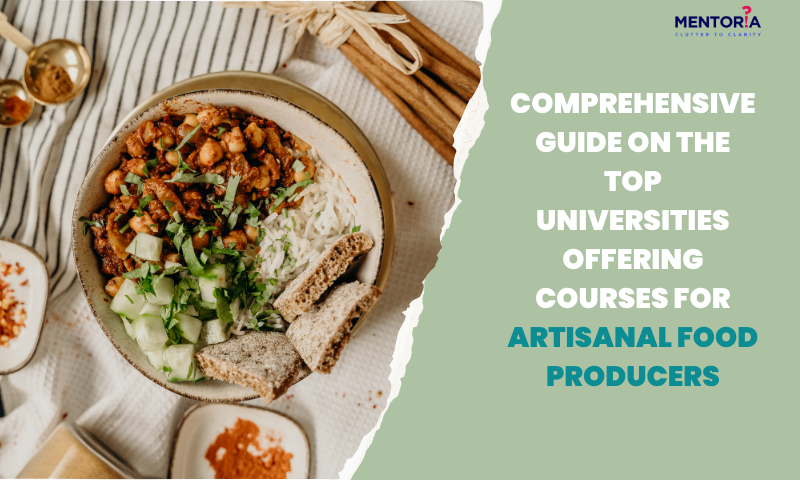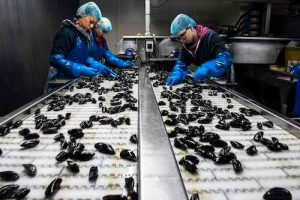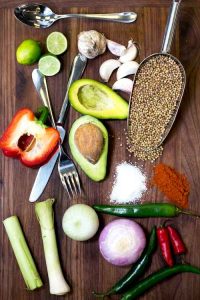Comprehensive Guide On The Top Universities Offering Courses For Artisanal Food Producers

Jump to Section
Are you passionate about creating delectable artisanal food products? Whether you dream of perfecting the art of cheese-making, baking artisan bread, or crafting gourmet chocolates, pursuing a course in artisanal food production can provide you with the skills and knowledge to turn your passion into a successful career. In this blog, we will explore the top 10 universities and institutions that offer courses for artisanal food producers in India and abroad. From hands-on training to comprehensive theoretical knowledge, these institutions provide a platform for aspiring food artisans to refine their craft and excel in the competitive food industry.
Institutions Offering Courses For Artisanal Food Producers
Le Cordon Bleu, France
Le Cordon Bleu, located in France, is globally renowned for its culinary expertise and offers comprehensive courses for aspiring artisan food producers. The institution’s programs cover a wide range of topics, including bread making, pastry arts, cheese production, and more. Students receive hands-on training from experienced chefs and gain a deep understanding of the techniques and principles behind artisanal food production. The tuition fees for Le Cordon Bleu programs vary depending on the course and duration. On average, the fees range from ₹25,00,000 to ₹40,00,000, making it a significant investment for those seeking top-notch culinary education.
- Ranking: Le Cordon Bleu is renowned globally for its culinary programs, and its French campuses are highly regarded in the culinary industry.
- Accreditation: Le Cordon Bleu is accredited by various accreditation bodies, ensuring the quality and standards of its programs.
- Intake: The intake varies depending on the program and campus. It is recommended to check their official website for specific details.
- Challenges: Challenges may include rigorous training, high expectations, and maintaining a high level of culinary skills and creativity.
- Benefits: Students at Le Cordon Bleu gain a strong foundation in culinary arts, develop technical skills, and have access to a vast network of alumni and industry professionals.
- Entrance Exam: Le Cordon Bleu requires applicants to go through a selective admission process that may involve interviews, aptitude tests, and practical assessments.
Slow Food University, Italy
Slow Food University, situated in Italy, focuses on sustainable and artisanal food production. The courses offered emphasise the importance of local and seasonal ingredients, traditional cooking methods, and sustainable practices. Students learn the art of preserving food culture and promoting food biodiversity. The tuition fees for programs at Slow Food University range from ₹15,00,000 to ₹30,00,000, depending on the course and duration. Investing in education at Slow Food University can provide students with valuable knowledge and skills that align with the growing demand for sustainable and artisanal food products.
- Ranking: Slow Food University is recognized for its commitment to sustainable food practices and promoting local and traditional food cultures.
- Accreditation: Slow Food University operates under the umbrella of the Slow Food movement, a global organisation focused on food sustainability and cultural preservation.
- Intake: The university has specific intake periods for its programs. Interested applicants should check the university’s official website for detailed information.
- Challenges: Challenges may include understanding and implementing the principles of Slow Food, incorporating sustainability into food production, and promoting traditional food cultures.
- Benefits: Students at Slow Food University gain knowledge and skills in sustainable food production, learn about local food cultures, and become advocates for food system change.
- Entrance Exam: Slow Food University may require applicants to undergo an interview or submit a written statement showcasing their interest in sustainable food practices.
School Of Artisan Food, United Kingdom
The School of Artisan Food, located in the United Kingdom, offers a diverse range of courses designed to nurture the skills of artisanal food producers. Students learn from experienced artisans and industry professionals, gaining hands-on experience in producing a variety of artisanal products, such as bread, cheese, charcuterie, and more. The school’s comprehensive programs cover both theoretical knowledge and practical techniques required for successful artisanal food production. The tuition fees at the School of Artisan Food vary based on the course and duration, ranging from ₹10,00,000 to ₹25,00,000, making it an investment in developing expertise in the field.
- Ranking: The School Of Artisan Food is highly regarded in the United Kingdom for its focus on traditional artisanal food production.
- Accreditation: The school is accredited by various organisations and partners with renowned food producers and experts in the industry.
- Intake: The intake varies depending on the course and program. Interested applicants should visit the school’s official website for specific details.
- Challenges: Challenges may include mastering the techniques of artisanal food production, understanding food safety regulations, and building a successful artisanal food business.
- Benefits: Students at the School Of Artisan Food acquire specialised knowledge in traditional food production methods, gain practical skills, and have opportunities to connect with industry professionals.
- Entrance Exam: The school may require applicants to provide a written application, attend an interview, or demonstrate their interest and passion for artisanal food production.
Ecole Chocolat, Canada
Ecole Chocolat, located in Canada, specialises in the art and science of chocolate-making. The institution offers programs that provide in-depth knowledge and hands-on training in chocolate production techniques, flavour development, and product marketing. Students learn the intricacies of working with different types of chocolate, creating unique flavour profiles, and understanding the business aspects of the industry. The tuition fees for programs at Ecole Chocolat vary, with an average range of ₹5,00,000 to ₹10,00,000. By investing in education at Ecole Chocolat, students can gain the necessary skills to excel in the world of artisanal chocolate production.
- Ranking: Ecole Chocolat is known for its expertise in chocolate education and training, earning recognition in the field of confectionery arts.
- Accreditation: The school has established partnerships with renowned chocolate industry professionals and organisations.
- Intake: Ecole Chocolat offers online programs with flexible start dates. Interested applicants can check the school’s website for specific intake information.
- Challenges: Challenges may include mastering the techniques of chocolate making, understanding the science behind chocolate, and developing a unique brand and product line.
- Benefits: Students at Ecole Chocolat acquire comprehensive knowledge and skills in chocolate making, gain insights into the business aspects of the chocolate industry, and receive ongoing support from industry experts.
- Entrance Exam: The school may require applicants to submit an application form and demonstrate their passion for chocolate making through a written statement or portfolio.
Culinary Institute Of America (CIA), United States
The Culinary Institute of America (CIA), located in the United States, is a renowned institution offering comprehensive programs for aspiring artisan food producers. With a focus on culinary arts, the CIA provides students with a strong foundation in various aspects of food production, including baking, pastry arts, cheese-making, and charcuterie. The institution’s world-class facilities and experienced faculty ensure that students receive top-notch education and practical training. The tuition fees at CIA vary depending on the program and duration, ranging from ₹30,00,000 to ₹50,00,000. Investing in education at CIA opens doors to a wide range of career opportunities in the artisanal food production industry.
- Ranking: The Culinary Institute of America is highly regarded as one of the world’s premier culinary education institutions.
- Accreditation: The CIA holds accreditation from the Middle States Commission on Higher Education and various culinary industry organisations.
- Intake: The CIA has specific intake periods for its programs. Prospective students should refer to the official website for detailed information on application deadlines.
- Challenges: Challenges may include intensive culinary training, managing a fast-paced kitchen environment, and staying updated with evolving culinary trends.
- Benefits: Students at the CIA receive comprehensive culinary education, hands-on training from renowned chefs, access to state-of-the-art facilities, and opportunities for internships and industry connections.
- Entrance Exam: The CIA requires applicants to submit an application form, academic transcripts, letters of recommendation, and a personal statement expressing their passion for culinary arts.
University Of Gastronomic Sciences, Italy
The University of Gastronomic Sciences, located in Italy, offers comprehensive courses that delve into the world of artisanal food production. The university’s programs focus on the cultural, economic, and environmental aspects of food, providing students with a holistic understanding of the field. Through a combination of theoretical knowledge and practical experiences, students develop skills in sustainable food production, gastronomy, and food entrepreneurship. The tuition fees for programs at the University of Gastronomic Sciences range from ₹15,00,000 to ₹25,00,000, depending on the course and duration. Investing in education at this prestigious university equips students with the necessary knowledge and expertise for a successful career in the artisanal food industry.
- Ranking: The University of Gastronomic Sciences is recognized as a leading institution in the field of gastronomy and food studies.
- Accreditation: The university is accredited by the Italian Ministry of Education and various international accrediting bodies.
- Intake: The university has specific intake periods for its programs. Prospective students should visit the official website for detailed information on application deadlines.
- Challenges: Challenges may include studying the interdisciplinary aspects of gastronomy, understanding the cultural and social dimensions of food, and conducting research in food-related fields.
- Benefits: Students at the University of Gastronomic Sciences gain in-depth knowledge of food culture, sustainability, and gastronomy, have access to a diverse network of industry professionals, and engage in hands-on learning experiences.
- Entrance Exam: The university may require applicants to undergo a selection process that includes interviews, written tests, or submission of a research proposal.
Institute Of Culinary Education (ICE), United States
The Institute of Culinary Education (ICE) in the United States offers specialised courses for individuals interested in pursuing a career in artisanal food production. The institution provides hands-on training and industry-relevant knowledge in areas such as bread baking, cheese-making, and charcuterie. Students learn from experienced chefs and industry professionals, gaining practical skills and insights into the intricacies of artisanal food production. The tuition fees at ICE vary depending on the course and duration, with an average range of ₹20,00,000 to ₹40,00,000. Investing in education at ICE can pave the way for a rewarding career in the world of artisanal food production.
- Ranking: The Institute of Culinary Education is highly regarded for its professional culinary training programs and industry connections.
- Accreditation: ICE is accredited by the Accrediting Commission of Career Schools and Colleges (ACCSC).
- Intake: ICE offers programs with multiple start dates throughout the year. Interested applicants should check the official website for specific intake details.
- Challenges: Challenges may include mastering culinary techniques, adapting to a fast-paced kitchen environment, and gaining practical experience in various culinary disciplines.
- Benefits: Students at ICE receive hands-on training from experienced chefs, access to modern facilities and resources, opportunities for internships and industry networking, and career support services.
- Entrance Exam: The institute may require applicants to submit an application form, academic transcripts, letters of recommendation, and attend an admissions interview.
Lavonne Academy Of Baking Science And Pastry Arts, India
Lavonne Academy of Baking Science and Pastry Arts, located in Bengaluru, India, specialises in baking and pastry arts education. The academy offers a range of courses for individuals interested in honing their skills in creating artisanal baked goods and pastries. With a focus on hands-on training and industry-relevant techniques, students develop a strong foundation in the art of baking. The tuition fees for programs at Lavonne Academy range from ₹3,00,000 to ₹6,00,000, depending on the course and duration. Investing in education at this esteemed academy provides aspiring artisan food producers with the necessary skills to excel in the field.
- Ranking: Lavonne Academy is recognized as a premier baking and pastry arts institute in India, known for its comprehensive training programs.
- Accreditation: The academy operates under the guidance of industry professionals and experienced pastry chefs.
- Intake: Lavonne Academy offers multiple intakes throughout the year. Prospective students should visit the official website for detailed information on program start dates and application deadlines.
- Challenges: Challenges may include honing baking techniques, understanding ingredient science, managing a professional bakery environment, and staying updated with industry trends.
- Benefits: Students at Lavonne Academy receive hands-on training in baking and pastry arts, learn from industry experts, gain practical experience through industry internships, and have opportunities to showcase their skills in national and international competitions.
- Entrance Exam: The academy may require applicants to attend a baking trial or submit a portfolio of their baking creations as part of the application process.
Culinary Academy Of India, India
The Culinary Academy of India, situated in Hyderabad, offers comprehensive programs for individuals aspiring to become artisanal food producers. The academy provides hands-on training in various aspects of food production, including baking, pastry arts, cheese-making, and more. With experienced faculty and state-of-the-art facilities, students gain practical skills and theoretical knowledge to excel in the industry. The tuition fees for programs at the Culinary Academy range from ₹3,50,000 to ₹7,00,000, depending on the course and duration. By investing in education at this renowned institution, individuals can embark on a fulfilling career in the field of artisanal food production.
- Ranking: The Culinary Academy of India is one of the leading culinary education institutions in India, known for its comprehensive culinary programs.
- Accreditation: The academy is recognized by the Government of India and affiliated with the Osmania University, Hyderabad.
- Intake: The academy offers programs with specific intake periods. Prospective students should refer to the official website for detailed information on application deadlines.
- Challenges: Challenges may include mastering culinary techniques, managing a professional kitchen, working under time constraints, and adapting to diverse culinary styles.
- Benefits: Students at the Culinary Academy of India receive comprehensive culinary training, learn from experienced chefs and industry professionals, gain hands-on experience through practical training, and have opportunities for internships and industry placements.
- Entrance Exam: The academy may require applicants to appear for an entrance exam, which tests their culinary aptitude, basic knowledge, and passion for the culinary arts.
The School Of Artisan Food And Beverage, India
The School of Artisan Food and Beverage, located in Goa, India, offers specialised courses focused on traditional Indian culinary arts and artisanal food production. The institution emphasises preserving the rich culinary heritage of India while imparting modern techniques and knowledge required for artisanal food production. With experienced faculty and hands-on training, students develop skills in various aspects of food production, including spices, condiments, pickles, and more. The tuition fees for programs at the School of Artisan Food and Beverage range from ₹2,00,000 to ₹4,00,000, making it an affordable option for those seeking education in artisanal food production within India.
- Ranking: The School Of Artisan Food And Beverage is recognized for its focus on artisanal food and beverage production, providing specialised training in the field.
- Accreditation: The school operates under the guidance of industry professionals and experts in the artisanal food and beverage industry.
- Intake: The school offers specific intake periods for its programs. Prospective students should visit the official website for detailed information on application deadlines.
- Challenges: Challenges may include mastering the techniques of artisanal food and beverage production, understanding quality control and preservation methods, and developing a unique brand and product line.
- Benefits: Students at The School Of Artisan Food And Beverage gain in-depth knowledge and skills in artisanal food and beverage production, learn from industry experts, and have opportunities to showcase their creations to a wider audience.
- Entrance Exam: The school may require applicants to undergo a selection process that includes interviews, written tests, or submission of a portfolio showcasing their passion and creativity in artisanal food and beverage production.
Future Scope Of Artisanal Food Producers Field
The field of artisanal food production offers promising future career and job opportunities for individuals passionate about culinary arts and creating unique, handcrafted food products. As consumer preferences shift towards sustainable and locally sourced foods, the demand for artisanal food producers continues to grow. Here are some key aspects to consider regarding the future scope of the artisanal food producer field:
Entrepreneurial Opportunities
The field of artisanal food production provides ample entrepreneurial opportunities for individuals with a passion for culinary arts and a desire to create their own ventures. By starting their own artisanal food businesses, individuals can showcase their unique products and flavours, and build a brand that resonates with their target market. Whether it’s a bakery, a specialty chocolate shop, or a gourmet food truck, entrepreneurs in this field have the chance to bring their creative visions to life and connect with customers who appreciate the craftsmanship and authenticity of artisanal food.
Collaborations And Partnerships
Collaboration is key in the artisanal food production industry. Artisans can collaborate with local farmers, growers, and suppliers to source the finest ingredients for their products. Additionally, partnerships with specialty food stores, restaurants, and cafes can help artisans expand their reach and gain exposure to a wider customer base. By working together with other like-minded individuals and businesses, artisans can foster a sense of community, share resources, and collectively promote the values of artisanal food production.
Growth Statistics
The artisanal food production industry has experienced significant growth in recent years, driven by consumers’ increasing demand for unique and high-quality food products. According to market research, the global market for artisanal foods is expected to reach a value of over ₹10 lakh crore by 2025, with a compound annual growth rate of around 8%. This growth is attributed to factors such as the rising preference for handcrafted products, the focus on sustainable and locally sourced ingredients, and the desire for authentic and personalised food experiences.
Career Progression
The career progression in the field of artisanal food production is diverse and exciting. As individuals gain experience and refine their skills, they can progress to higher positions within their own businesses or in established organisations. For example, a baker may advance to become a head pastry chef, overseeing a team of artisans. Similarly, a cheese producer may become a master cheesemaker, known for their expertise in creating unique and distinctive cheeses. Additionally, opportunities exist in food consulting, culinary education, product development, and brand management, allowing artisans to explore various paths as their careers evolve.
Professional Associations And Networks
Joining professional associations and networks specific to the artisanal food production industry can be highly beneficial for artisans. These associations provide platforms for artisans to connect, collaborate, and share knowledge and resources. They organise events, workshops, and conferences that facilitate learning and networking opportunities. Examples of such associations include the Specialty Food Association (SFA), the Artisan Food Guild, and local food cooperatives. By being part of these networks, artisans can stay updated on industry trends, gain access to educational resources, and connect with potential collaborators and mentors.
International Opportunities
The artisanal food production field offers exciting international opportunities for those interested in exploring different culinary traditions and expanding their horizons. Artisans can seek internships or employment with renowned international establishments, allowing them to learn from experts in diverse cultural settings. Additionally, artisanal food festivals and events around the world provide opportunities for artisans to showcase their products, connect with international buyers and distributors, and gain exposure on a global scale. This international exposure not only broadens their culinary knowledge but also opens doors to new markets and collaborations.
Continuous Learning And Skill Development
The world of artisanal food production is ever-evolving, with new techniques, flavours, and trends emerging constantly. As such, continuous learning and skill development are vital for artisans to stay competitive and relevant in the industry. Artisans can enhance their skills by attending workshops, culinary classes, and industry conferences. They can also experiment with new ingredients, flavours, and production methods to expand their repertoire. By embracing a mindset of lifelong learning, artisans can continually innovate, refine their craft, and offer unique experiences to their customers.
By exploring entrepreneurial opportunities, collaborating with like-minded individuals, staying informed about industry growth, progressing in their careers, joining professional networks, exploring international prospects, and embracing continuous learning, individuals can thrive in the dynamic field of artisanal food production. With a combination of passion, creativity, business acumen, and dedication to quality, artisans can carve out successful and fulfilling careers in this exciting industry.
Payscale At Various Levels
The payscale in the artisanal food production field can vary depending on several factors such as experience, location, type of establishment, and level of success. Here is an overview of the payscale at various levels:
Entry-level Positions: At the initial stages of a career in artisanal food production, individuals may start as apprentices, assistants, or junior positions. The pay at this level can range from ₹2,00,000 to ₹4,00,000 per year.
Mid-level Positions: As artisans gain experience and expertise, they can progress to mid-level positions such as head chef, product manager, or production supervisor. The payscale at this level typically ranges from ₹4,00,000 to ₹8,00,000 per year.
Senior-level Positions: Senior-level positions in artisanal food production include roles like master chocolatier, head baker, or executive chef. These positions command a higher salary range, typically from ₹8,00,000 to ₹20,00,000 per year.
Entrepreneurial Ventures: Artisans who establish their own artisanal food businesses have the potential for higher earning opportunities. The income can vary significantly depending on the success of the venture, market demand, and brand recognition. Successful entrepreneurs can earn upwards of ₹20,00,000 per year.
Industry Experts and Consultants: Individuals who become recognized experts in the field of artisanal food production can pursue consulting or teaching opportunities. As consultants, they can offer their expertise to businesses and organisations, earning fees that can range from ₹50,000 to ₹2,00,000 per project.
Which Countries Have Growth Perspectives?
Several countries offer growth perspectives in the field of artisanal food production. Here are some notable countries, including India, along with information on the payscale and growth statistics:
India
With its diverse culinary traditions and a burgeoning interest in artisanal food, India presents a promising growth perspective for aspiring artisans. The payscale in India can vary based on factors such as experience, location, and the success of the artisanal brand. Entry-level positions may start at around ₹2,00,000 to ₹4,00,000 per year, while seasoned artisans and successful entrepreneurs can earn ₹20,00,000 or more annually. The increasing demand for unique and locally sourced food products, coupled with a growing consumer appreciation for artisanal craftsmanship, contributes to the bright future of the artisanal food production industry in India.
United States
The United States has a thriving artisanal food scene, driven by a strong emphasis on high-quality, handcrafted products. The payscale for artisanal food producers in the US can vary depending on factors such as experience, reputation, and market demand. Entry-level positions typically offer salaries ranging from $30,000 to $50,000 per year, while established artisans and successful business owners can earn six-figure incomes or more. The continued growth of the local food movement, increasing consumer preference for artisanal products, and the rise of farmers markets and specialty stores contribute to the promising outlook for artisanal food producers in the US.
France
As a country renowned for its culinary heritage and appreciation for artisanal craftsmanship, France offers a favourable environment for artisans in the food industry. The payscale for artisanal food producers in France can vary depending on factors such as skill level, experience, and the reputation of the artisan. Entry-level positions may offer salaries ranging from €20,000 to €30,000 per year, while experienced artisans with established brands can earn €50,000 or more annually. The enduring tradition of artisanal food production, the emphasis on local and regional specialties, and the strong cultural appreciation for quality gastronomy contribute to the growth potential for artisans in France.
Italy
Italy, known for its rich culinary traditions and artisanal food products, offers a promising landscape for aspiring artisans. The payscale in Italy can vary based on factors such as experience, specialisation, and geographical location. Entry-level positions typically offer salaries ranging from €20,000 to €30,000 per year, while experienced artisans and established producers can earn €40,000 or more annually. The country’s commitment to preserving traditional food production methods, the importance placed on regional specialties, and the enduring global appeal of Italian cuisine contribute to the growth prospects for artisans in Italy.
Australia
Australia’s thriving food scene and a growing emphasis on locally sourced, sustainable products create opportunities for artisans in the country. The payscale for artisanal food producers in Australia can vary depending on factors such as experience, market demand, and geographic location. Entry-level positions may offer salaries ranging from AUD 40,000 to AUD 60,000 per year, while experienced artisans with established brands can earn AUD 60,000 or more annually. The increasing consumer interest in artisanal food, the focus on quality and sustainability, and the vibrant farmers markets and food festivals contribute to the positive outlook for artisans in Australia.
How Is Technology And AI Impacting The Artisanal Food Production Field?
Streamlined Production Processes
Technology and AI have revolutionised the artisanal food production process, enabling producers to streamline operations and increase efficiency. Advanced machinery and automation technologies have reduced manual labour, improved precision, and enhanced productivity. This not only saves time and resources but also ensures consistent quality across batches, meeting consumer expectations.
Data-driven Decision Making
The use of technology and AI in the artisanal food production field allows producers to make data-driven decisions. By analysing market trends, consumer preferences, and production data, producers can identify opportunities, optimise recipes, and refine their product offerings. This data-driven approach enables them to stay ahead of the competition, adapt to changing consumer demands, and maximise profitability.
Supply Chain Management
Technology has transformed supply chain management for artisanal food producers. Through the use of inventory management systems, logistics software, and real-time tracking, producers can streamline their supply chain operations. This ensures efficient procurement of raw materials, timely production, and effective distribution, reducing costs and improving overall efficiency.
Enhanced Quality Control
Technology and AI play a crucial role in maintaining and enhancing quality control in artisanal food production. With the help of sensors, data analytics, and machine learning algorithms, producers can monitor and control various parameters such as temperature, humidity, and ingredient proportions. This ensures consistent quality, reduces the risk of product defects, and enhances food safety standards.
Online Presence And Marketing
The advent of technology has opened up new avenues for artisanal food producers to showcase their products and reach a wider audience. Online platforms, social media, and e-commerce websites provide a direct channel for producers to connect with consumers, promote their products, and build a brand presence. This not only increases market visibility but also allows for direct customer engagement, feedback, and loyalty-building initiatives. Online marketing strategies, such as influencer collaborations and targeted advertising, further enhance the reach and impact of artisanal food producers in the digital space.
Become An Artisanal Food Producer With Mentoria!
Embarking on a career as an artisanal food producer requires dedication, skill, and knowledge. By enrolling in courses offered by these top universities and institutions, aspiring artisans can acquire the necessary expertise to thrive in the competitive food industry. From France to India, these institutions provide comprehensive training in various aspects of artisanal food production, nurturing creativity and fostering a deep appreciation for the craft. So, if you aspire to create exquisite artisanal food products and make a mark in the culinary world, consider exploring the offerings of these esteemed institutions. Embrace your passion for artisanal food production and embark on a journey of culinary excellence.
We’re here to provide you with all the help! Kick-start your journey with Mentoria and discover the right fit for you. Feel free to call us to speak to our career mentors and choose the right guidance plan that suits your needs.
Mentoria’s career guidance programme enables you to choose your perfect fit from 3 streams, 850+ courses, and 12,000+ careers, and discover what will bring out the best in you.










